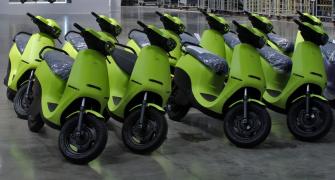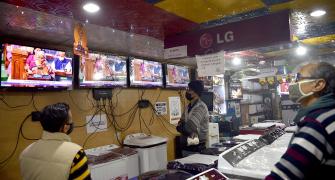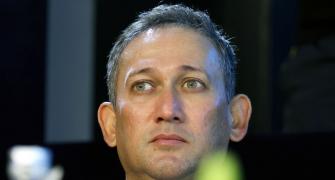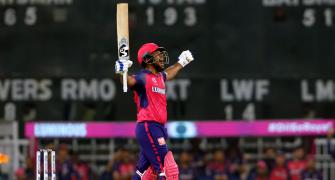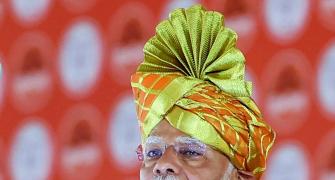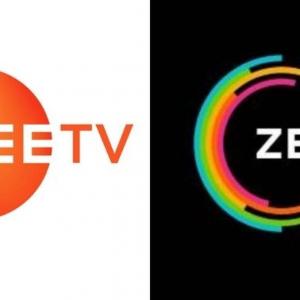State-owned fuel retailers are losing close to Rs 3 per litre on selling diesel while the profit on petrol has trimmed due to recent firming up in international oil prices, industry officials said detailing reasons for continuing to hold retail prices.
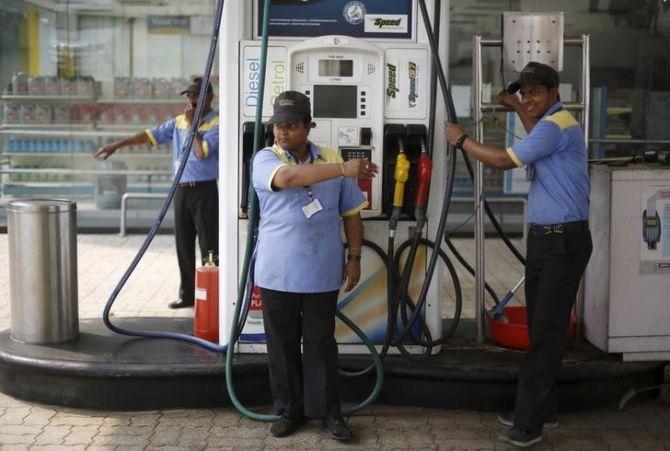
Indian Oil Corporation (IOC), Bharat Petroleum Corporation Ltd (BPCL) and Hindustan Petroleum Corporation Ltd (HPCL), who control roughly 90 per cent of India's fuel market, 'voluntarily' have not changed petrol, diesel and cooking gas (LPG) prices for almost two years now, resulting in losses when input cost was higher and profits when raw material prices were lower.
International oil prices, against which domestic rates are benchmarked as India is 85 per cent dependent on imports to meet its oil needs, had softened late last year but firmed up again in the second half of January.
They have resisted calls to revert to daily price revision and pass on softening in rates to consumers on grounds that prices continue to be extremely volatile - rising on one day and falling on the other - and that their past losses haven't been fully recouped.
"There are losses on diesel," an industry official said.
"It had turned positive but now oil companies are losing close to Rs 3 per litre."
He said the profit margin on petrol has trimmed from low teens to around Rs 3-4 a litre.
Asked about fuel price revision, Oil Minister Hardeep Singh Puri told reporters on the sidelines of the India Energy Week that the government does not dictate prices and the oil companies take their decision considering all economic aspects.
"They say there is still volatility (in the market)," he said.
Asked about the bumper Rs 69,000 crore profits that the three firms have clocked in the first nine months of the current fiscal, he said the expectation would be to start price revision if the trend continues in the fourth and last quarter of the current fiscal year ending March 31.
"They had losses when they voluntarily decided not to raise prices (despite oil prices going up)," he said.
The combined net profit of IOC, BPCL and HPCL in the April-December (first nine months of current fiscal year) was better than their annual earning of Rs 39,356 crore in pre-oil crisis year, regulatory filings by them showed.
The firms had posted a combined net loss of Rs 21,201.18 crore during the April-September 2022 despite accounting for Rs 22,000 crore announced but not paid LPG subsidy for the previous two years.
Subsequent softening of international prices and government giving out LPG subsidy helped IOC and BPCL post annualised profit for 2022-23 (April 2022 to March 2023 fiscal) but HPCL was in the red.
This fiscal year, things have changed dramatically.
The three firms posted record quarterly earnings in the first two quarters (April-June and July-September) when international oil prices - against which domestic rates are benchmarked - almost halved to $72 a barrel from a year ago. International prices rose again in the subsequent quarter to $90, leading to moderation of their earnings.
But, on a year as a whole they had rich profits.
The fuel price freeze that began on April 6, 2022, had a loss as high as Rs 17.4 a litre on petrol and Rs 27.7 per litre on diesel for the week ended June 24, 2022.
However, subsequent softening led to losses being eliminated.
The three firms had a margin of Rs 11 a litre on petrol and Rs 6 on diesel last month.
But now things have changed, another industry official explained.
International oil prices have been turbulent in the last couple of years.
It dipped into the negative zone at the start of the pandemic in 2020 and swung wildly in 2022 - climbing to a 14-year high of nearly $140 per barrel in March 2022 after Russia invaded Ukraine, before sliding on weaker demand from top importer China and worries of an economic contraction.
But for a nation that is 85 per cent dependent on imports, the spike meant adding to already elevated levels of inflation and derailing the economic recovery from the pandemic.
So the three fuel retailers froze petrol and diesel prices for the longest duration in the last two decades.
They stopped daily price revision in early November 2021 when rates across the country hit an all-time high, prompting the government to roll back a part of the excise duty hike it had effected during the pandemic to take advantage of low oil prices.
The freeze continued into 2022 but the war-led spike in international oil prices prompted a Rs 10 a litre hike in petrol and diesel prices from mid-March 2022 before another round of excise duty cut rolled back all of the Rs 13 a litre and Rs 16 a litre increase in taxes on petrol and diesel done during the pandemic.
That followed the current price freeze that began on April 6, 2022 and still continues.

